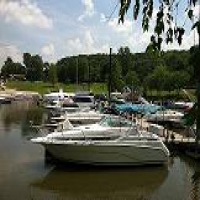Almost 1,000 Entities Want to Participate in FCC
Post# of 17655

 Almost 1,000 entities want to participate in rural broadband trials planned by the Federal Communications Commission , according to a blog post published by the FCC yesterday. An FCC spokesman told Telecomptetitor that the commission has received about 950 expressions of interest in participating in the trials.
Almost 1,000 entities want to participate in rural broadband trials planned by the Federal Communications Commission , according to a blog post published by the FCC yesterday. An FCC spokesman told Telecomptetitor that the commission has received about 950 expressions of interest in participating in the trials.
For the trials, the commission plans to use a portion of the existing Universal Service/ Connect America Fund budget to cover some of the cost of deploying broadband to areas where broadband is not currently available.
The trials will help shape the CAF program for small rural rate of return carriers. In addition the trials aim to gain information to help shape the competitive bidding process that will occur if larger price cap carriers decline to deploy broadband at the level of support offered by the FCC.
The commission plans to request a second more detailed round of submissions at a future date that has not yet been specified.
How submissions break down
By Telecompetitor’s estimate just under half (46.7%) of submissions came from rural rate of return carriers. Our estimate is based on a review of 30 submissions chosen at random – a sample size of about 3%.
Other submitters included competitive carriers (23.3%), municipalities (6.7%), and utility companies (6.7%). In addition we saw filings from a tribal entity, a non-profit organization, a research and education network and other types of entities.
The FCC order about the rural broadband trials was somewhat vague about the information that interested parties needed to include in their letters of interest. Those interested in deploying broadband to unserved areas in price cap territories were asked to include:
- The type of entity (incumbent carrier, municipality, etc.)
- Proposed service area including census block number
- Broadband technology to be deployed
- Contemplated service offerings and pricing
- Expected state and/or local or tribal government participation (if known)
- Whether the proposal will require one-time or continuing funding and a high-level estimate of the funding requested
But the order did not include such detailed requirements for trials proposed in rate of return territories. Accordingly many submissions did not include details.
Project budgets
Two thirds of the submissions that Telecompetitor reviewed included an estimate of the funding needed for the proposed projects. The vast majority (90%) said they would not need ongoing support but instead would need one-time or a fixed amount of funding. (Some applicants requested a fixed amount of funding but suggested spreading their requirements over a period of three to 10 years).
The smallest amount of funding requested was $495,000. That request came from a broadband wireless Internet service provider.
![]() The highest amount requested was $8 million to $12 million per year for three to five years. That request came from a municipality.
The highest amount requested was $8 million to $12 million per year for three to five years. That request came from a municipality.
The average amount of funding requested was approximately $10 million.
In its order, the FCC asked for input on whether a budget of $50 million to $100 million might be appropriate for the rural broadband trials. If the budget is set in that range and if average-size projects are selected, our estimate suggests the commission would be able to fund about five to 10 projects.
In its order, however, the commission proposed selecting projects based on cost effectiveness. Telecompetitor couldn’t calculate this number for most of the projects proposed because most of the letters we reviewed did not specify the number of households that would be served. (Potentially this number could be calculated for those entities that specified project census blocks.)
Considering the overwhelming interest in the rural broadband trials it wouldn’t be surprising to see the commission select projects with lower overall budgets in order to maximize the number of projects for the trial.
 (0)
(0) (0)
(0)